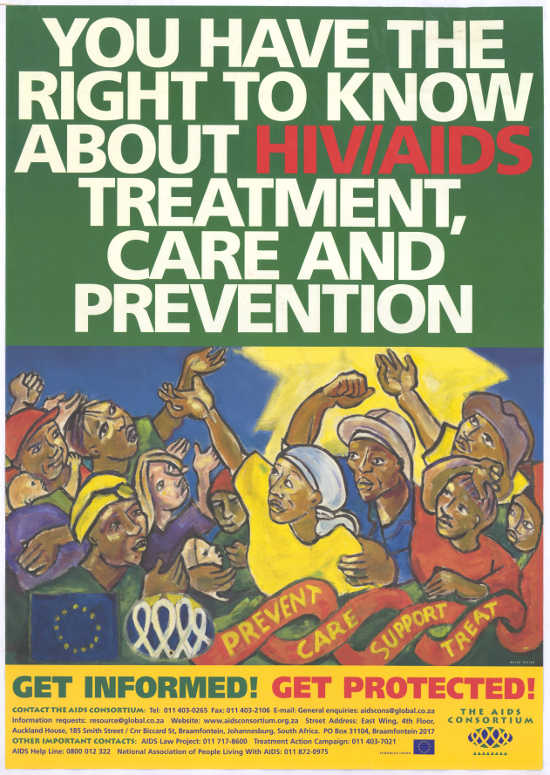 Between the years 2003 and 2011, the mobilisation against HIV was lively, within South Africa, in Africa more generally and across the world. At the time many people were getting diagnosed with the virus, and they needed hope for the future. In order to test how private and public bodies were responding the issue, SAHA’s Freedom of Information Programme (FOIP) used the Promotion of Access to Information Act, 2000 (PAIA) to submit requests for records relating to policies and research done on HIV/AIDS within those different private and public bodies. Although the number of requests submitted per year varied over the period that the project ran, SAHA’s particular areas of focus shifted over time between various spheres of the socio-political realm. During the period that the project ran SAHA submitted 32 requests, most of which were submitted in 2004, and most of which were submitted to private bodies.
Between the years 2003 and 2011, the mobilisation against HIV was lively, within South Africa, in Africa more generally and across the world. At the time many people were getting diagnosed with the virus, and they needed hope for the future. In order to test how private and public bodies were responding the issue, SAHA’s Freedom of Information Programme (FOIP) used the Promotion of Access to Information Act, 2000 (PAIA) to submit requests for records relating to policies and research done on HIV/AIDS within those different private and public bodies. Although the number of requests submitted per year varied over the period that the project ran, SAHA’s particular areas of focus shifted over time between various spheres of the socio-political realm. During the period that the project ran SAHA submitted 32 requests, most of which were submitted in 2004, and most of which were submitted to private bodies.
These requests for information were not unaccompanied by struggles, as with most requests. SAHA met with a number of challenges, particularly, although not exclusively, with those submitted in the early years of the introduction of PAIA. Challenges related both to compliance with the Act broadly, as well as to the actual release of records. Although 56% of the decisions on these requests were favourable, with the full or partial release of the records requested, and reasons provided in terms of PAIA for the records to which access was denied, 13% of the requests were completely ignored, and thus deemed refused in terms of the Act, and 31% were met with blanket refusals of access, that provided no reasons under PAIA for those refusals. The high rate of favourable decisions should be commended as evidencing a high level of compliance with PAIA, by some bodies, at a critical period in the history of HIV/AIDS in South Africa, and at a time when PAIA was still relatively new.
Of the requests that were actively denied by private bodies, some were denied in terms of sections 63 and 69 of PAIA. Section 63 mandates the denial of access to records in circumstances were it is necessary to do so in order to protect the privacy or personal information of a natural person, while section 69 mandates denial of access to certain research information of third parties. In other instances access was denied because the requested records were never created, as seen in bodies denying requests in terms of sections 23 of PAIA (if a public body) and 55 of PAIA (if a private body).
The right of access to information, as an enabling right, can give persons suffering of HIV/AIDS access to information that could make their lives easier in the work place and in society. PAIA could for instance be used as a tool to gain access to information that can be used in exercising the right to equality, the right not to be unfairly discriminated against and the right to health care.
Although there were more positive responses than negative, and although the records released appear to show that many public and private bodies have adopted strategies and created policies to fight this epidemic, the question remains whether all of those bodies actually “walk the talk” – that is: do they implement their policies and strategies? This is something that could possibly be further interrogated through more strategic PAIA requests.
The records released to SAHA in relation to this project form part of the Freedom of Information Programme Collection in the SAHA website.





 Between the years 2003 and 2011, the mobilisation against HIV was lively, within South Africa, in Africa more generally and across the world. At the time many people were getting diagnosed with the virus, and they needed hope for the future. In order to test how private and public bodies were responding the issue, SAHA’s
Between the years 2003 and 2011, the mobilisation against HIV was lively, within South Africa, in Africa more generally and across the world. At the time many people were getting diagnosed with the virus, and they needed hope for the future. In order to test how private and public bodies were responding the issue, SAHA’s